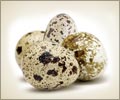Interferon beta used in the treatment of malignant skin cancer and hepatitis was engineered in hens and it was present in the eggs it laid.
Highlights
- Hens engineered with interferon beta laid eggs that contain the protein.
- Interferon beta is used in the treatment of malignant skin cancer and hepatitis.
- The protein was introduced in eggs using gene editing technology.
Interferon beta are cells which are precursors of chicken sperm. Introducing genes that can produce these cells has a high possibility of the protein to be retained in the cells.
These cells were also used to fertilise eggs and the hens which were developed from the eggs inherited those genes, meaning the birds were able to lay eggs containing the disease-fighting agent.
The scientists now have three hens whose eggs contain the drug, with the birds laying eggs almost daily. Though it might sound simple, the process is still under testing and should be confirmed with clinical trials.
The researchers plan to sell the drug to pharmaceutical companies, halving its price, so the firms can use it first as a research material, the newspaper said.
Reference
-
Japan scientists grow drugs in chicken eggs
- https://phys.org/news/2017-10-japan-scientists-drugs-chicken-eggs.html
















